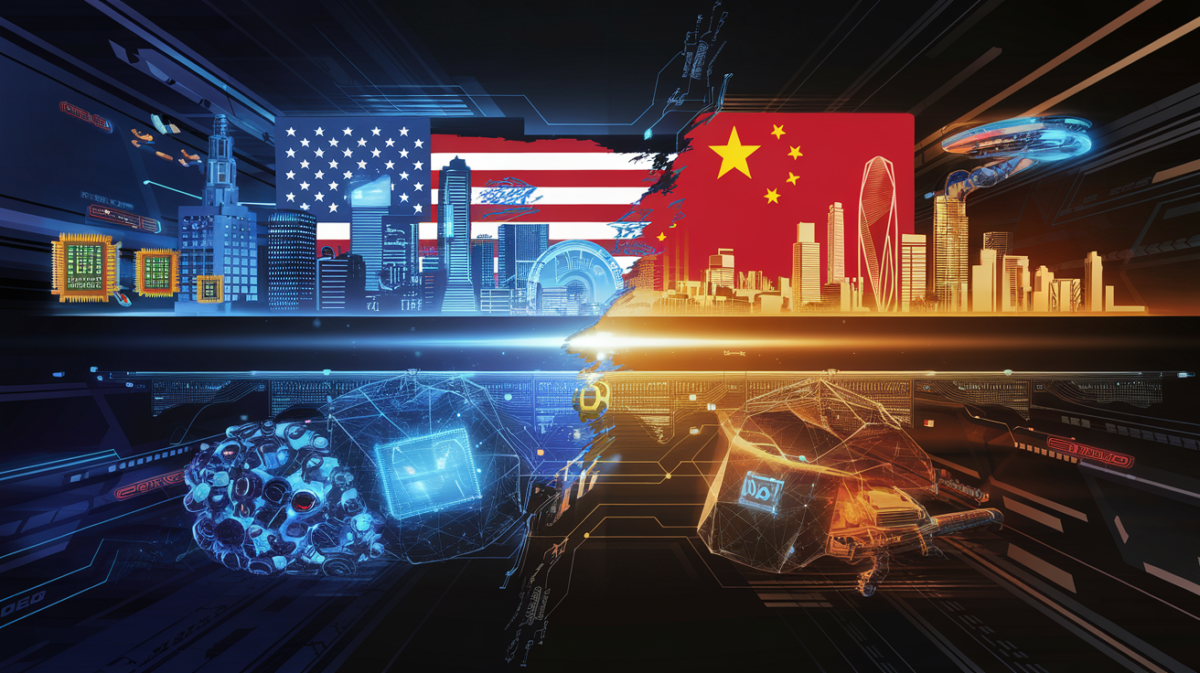The global race for artificial intelligence (AI) supremacy has intensified, with the United States and China emerging as the frontrunners in a competition that could redefine economic, military, and geopolitical power. As both nations pour billions into AI research and development, the stakes have never been higher.
China’s Rapid Rise in AI Innovation
China has made remarkable strides in AI, challenging the long-standing dominance of U.S. tech giants. A prime example is DeepSeek, a Chinese startup that unveiled its R1 AI model in early 2025. The model matched the performance of leading U.S. AI systems but was developed at a fraction of the cost, signaling China’s growing prowess in the field.
Key factors driving China’s AI advancements include:
- Government Support: The “Made in China 2025” initiative has prioritized AI development, aiming for self-sufficiency in critical technologies.
- Cost Efficiency: Chinese firms have demonstrated an ability to innovate affordably, making AI more accessible domestically.
- Strategic Focus: Despite U.S. sanctions, China has doubled down on AI research, achieving breakthroughs in sectors like healthcare and autonomous vehicles.
U.S. Countermeasures and Industry Concerns
In response to China’s progress, the U.S. has taken legislative and strategic steps to safeguard its technological edge. Bipartisan efforts, such as the “No Adversarial AI Act,” seek to block federal agencies from using AI models developed by adversarial nations, including China.
Industry leaders have also sounded the alarm. Executives from OpenAI, Microsoft, and AMD have urged the U.S. government to:
- Streamline AI chip exports to maintain competitiveness.
- Reduce regulatory hurdles for domestic AI development.
- Invest in infrastructure to support AI innovation.
Geopolitical and Security Implications
The AI race extends beyond technology—it has profound geopolitical ramifications. Experts warn that AI superiority could translate into military and economic advantages, reshaping global power dynamics. The emergence of superintelligent AI, like China’s DeepSeek R1, has sparked debates about:
- National security risks posed by foreign-developed AI.
- The need for international frameworks to govern AI advancements.
- The ethical implications of AI in warfare and surveillance.
Industry Leaders and Market Dynamics
While startups like DeepSeek are making waves, established Chinese tech giants such as Tencent and Alibaba remain dominant players in the AI sector. These companies are well-positioned to lead China’s AI revolution, leveraging their vast resources and market influence.
Here’s a comparison of key players in the U.S. and China:
| Country | Leading AI Companies | Key Strengths |
|---|---|---|
| United States | OpenAI, Google DeepMind, Microsoft | Cutting-edge research, global market reach |
| China | Tencent, Alibaba, DeepSeek | Cost efficiency, government backing, rapid scaling |
Public and Ethical Debates
The U.S.-China AI rivalry has sparked widespread discussion on platforms like Reddit and YouTube, where users debate:
- The potential risks of China’s AI advancements.
- The effectiveness of U.S. policies to counter China’s progress.
- The ethical dilemmas surrounding AI development and deployment.
Looking Ahead
The competition for AI supremacy is far from over. Both nations are investing heavily, and the outcomes will shape the future of technology, economics, and global security. As the race unfolds, the world watches closely, aware that the winner could gain unprecedented influence in the 21st century.
For now, the U.S. and China remain locked in a high-stakes battle, with innovation, policy, and strategy determining who will lead the AI revolution.







